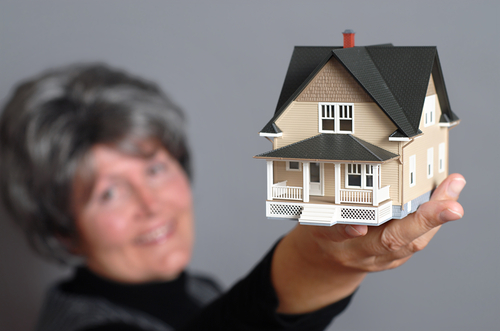The current combination of record-low interest rates and high property prices provides an excellent opportunity to use equity release, retirement income specialist Age Partnership says in a new study. The average rate for an equity release lifetime mortgage has fallen to a seven-year low, an analysis of 21,000 Age Partnership customer accounts reveals. As of August, […]
The current combination of record-low interest rates and high property prices provides an excellent opportunity to use equity release, retirement income specialist Age Partnership says in a new study.
 The average rate for an equity release lifetime mortgage has fallen to a seven-year low, an analysis of 21,000 Age Partnership customer accounts reveals.
The average rate for an equity release lifetime mortgage has fallen to a seven-year low, an analysis of 21,000 Age Partnership customer accounts reveals.
As of August, the average rate for equity release lifetime mortgages seen so far in 2015 is 5.82 per cent. This has dropped considerably from the average rate of 6.7 per cent seen in 2009, when Age Partnership started tracking rates.
At the same time, average property prices in the UK have reached a record high of £272,000. This means the average housing wealth of home-owning over-55s is likely to have increased significantly.
Particular benefits for older customers
The data also shows that rates have reduced amongst all ages of equity release customers, with mature customers particularly benefitting.
Age Partnership’s average 65 year old customer currently has a rate of 5.95%, compared to a customer 10 years older who benefits from a lower rate of 5.74 per cent. However, both ages have seen a drop in rates to record lows since 2009 when rates were over 6.60 per cent.
Growing home prices help even out interest payments
House price growth is helping to counteract the interest owed for taking out an equity release plan, meaning equity release customers can hang onto more of the equity in their house for longer.
The typical Age Partnership customer in this year to date has on average released £43,972 at an average fixed rate of 5.82 per cent on a property with an average worth of £252,951. By releasing less than 20 per cent of the value of their home, compared to an average maximum available of 34 per cent, they are evidently being sensible, taking just enough to meet whatever their needs may be.
If house prices were to rise at just 2 per cent a year, which is much lower than the current annual growth of 5.7 per cent, the average property value would have risen to £320,803 by 2027. Over the same time, the size of the equity owed would have risen to £86,694. However, this would leave total remaining equity of £234,109, up from £208,979 initially, showing the equity owned in the house would not be eroded in monetary terms.
“In the past seven years, we have seen house prices shoot up to record levels and demand shows no sign of slowing down. For those looking to tap into some of their housing wealth for retirement, the rising value of their home can help offset the interest owed through equity release, which should ease fears that some have of eroding their housing equity.
“Speaking to an adviser can help clear up any qualms you may have in what the process involves, as well as looking through the different options for each individual,” Simon Chalk, equity release expert at Age Partnership, commented.
House price growth and the effects of interest
(Based on average equity release rate of 5.82% p.a. and house price growth of 2% a year)
| Year | Equity owed | Property value | Remaining equity |
| 2015 | £43,972 | £252,951 | £208,979 |
| 2016 | £46,531 | £258,010 | £211,479 |
| 2017 | £49,239 | £263,170 | £213,931 |
| 2018 | £52,105 | £268,434 | £216,329 |
| 2019 | £55,138 | £273,802 | £218,665 |
| 2020 | £58,347 | £279,278 | £220,932 |
| 2021 | £61,742 | £284,864 | £223,122 |
| 2022 | £65,336 | £290,561 | £225,225 |
| 2023 | £69,138 | £296,372 | £227,234 |
| 2024 | £73,162 | £302,300 | £229,138 |
| 2025 | £77,420 | £308,346 | £230,926 |
| 2026 | £81,926 | £314,513 | £232,587 |
| 2027 | £86,694 | £320,803 | £234,109 |














